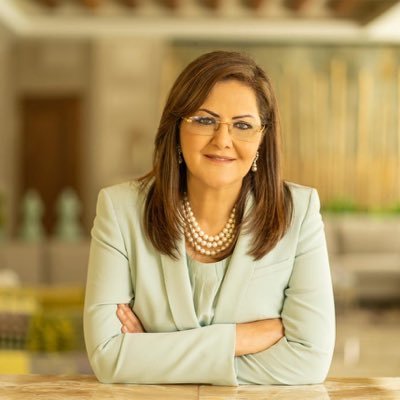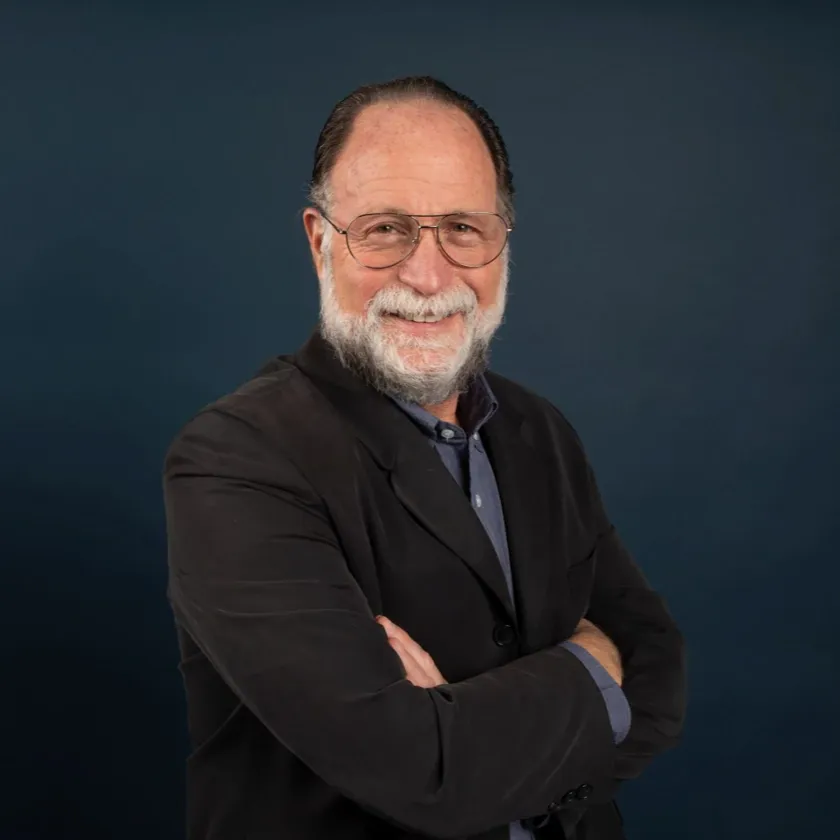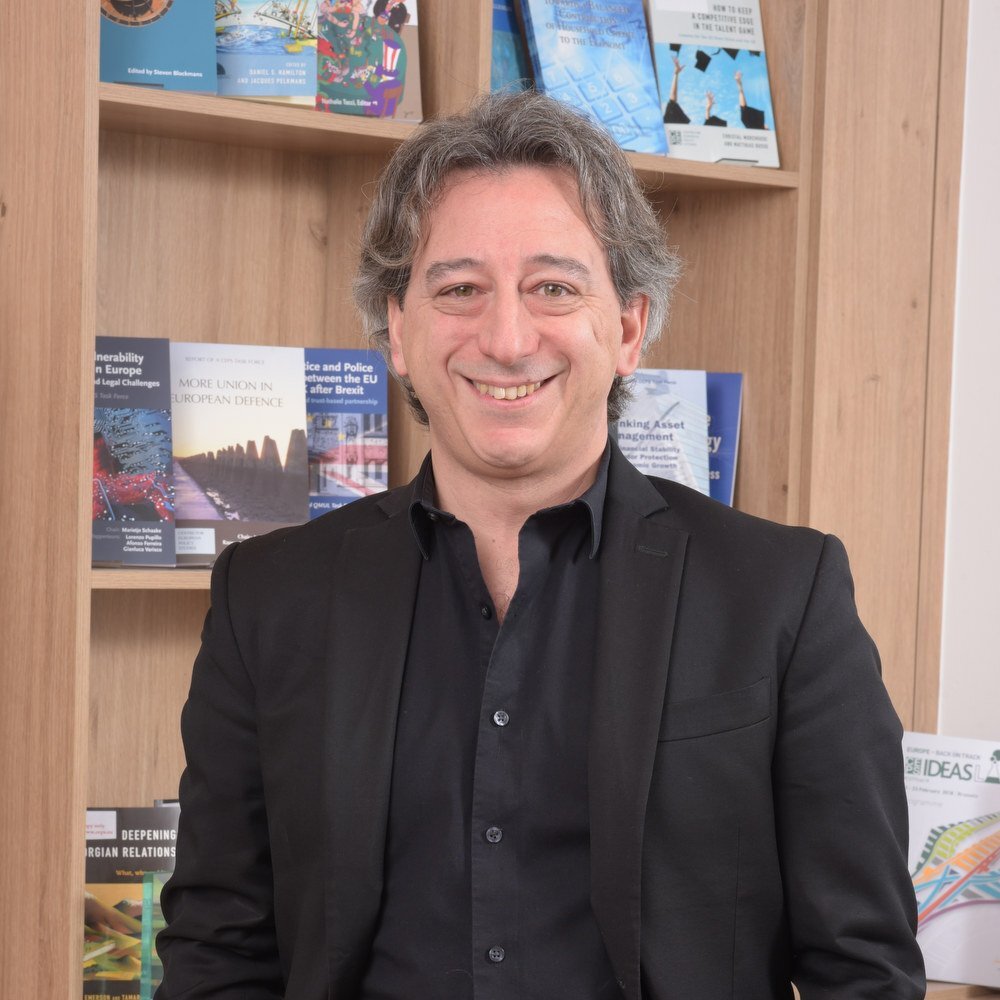
H.E. Dr. Hala H. El Said
Economic Advisor to the President, Arab Republic of EgyptDr. Hala H. Elsaid, a distinguished economist and academic, currently serves as the Economic Advisor to the President of Egypt, a role she assumed in July 2024. This follows her tenure as Minister of Planning and Economic Development from December 2019 to June 2024, and Minister of Planning, Monitoring and Administrative Reform from February 2017 to December 2019. Her excellence in leadership was recognized when she was named the Best Arab Minister by the Arab Government Excellence Award in November 2020.
Dr. Elsaid previously chaired The Sovereign Fund of Egypt, significantly influencing the country’s economic strategies. She led the implementation of the National Sustainable Development Strategy (Egypt Vision 2030) and initiated the National Structural Reform Program in 2021, focusing on labor-intensive sectors crucial for economic growth.
In the banking sector, Dr. Elsaid served on the Central Bank’s Board of Directors and as Executive Director of the Egyptian Banking Institute. She has also been an Advisor to the Central Bank Governor and held positions on various financial boards.
Dr. Elsaid earned her PhD in Economics with Highest Honors from Cairo University in 1989. She became the first elected Dean of the Faculty of Economics and Political Science in 2011 and served as Cairo University’s Deputy President for Scientific Research and Exterior Relations from 2013 to 2016.

Ricardo Hausmann
Ricardo Hausmann is the founder and Director of Harvard’s Growth Lab and the Rafik Hariri Professor of the Practice of International Political Economy at Harvard Kennedy School. Under his leadership, the Growth Lab has grown into one of the most well regarded and influential hubs for research on economic growth and development around the world.
His scholarly contributions have had a significant impact on the study and practice of development. These include the development of the Growth Diagnostics and Economic Complexity methodologies, as well as several widely used economic concepts, such as Dark Matter, Original Sin, and Self-discovery. His work has been published in some of the top journals in the world, including Science, Journal of Development Economics, Journal of International Economics, Proceedings of the National Academy of Sciences, Journal of International Money and Finance, Economic Policy and the Journal of Economic Growth, among many others. These publications have been cited more than 50,000 times.
Since launching the Growth Lab in 2006, Hausmann has served as principal investigator for more than 50 research initiatives in nearly 30 countries, including the US, informing development policy, growth strategies and diversification agendas at the national, regional, and city levels.
Before joining Harvard University, he served as the first Chief Economist of the Inter-American Development Bank (1994-2000), where he created the Research Department. He has served as Minister of Planning of Venezuela (1992-1993) and as a member of the Board of the Central Bank of Venezuela. He also served as Chair of the IMF-World Bank Development Committee. He was Professor of Economics at the Instituto de Estudios Superiores de Administracion (IESA) (1985-1991) in Caracas, where he founded the Center for Public Policy. He holds a Ph.D. in economics from Cornell University.

Andrea Renda
Andrea Renda is Director of Research at CEPS since 1 November 2023. He also leads the CEPS Unit on Global Governance, Regulation, Innovation and the Digital Economy (GRID).
He is Adjunct Professor of Digital Policy at the School of Transnational Governance of the European University Institute, in Florence (Italy), where he (i) teaches courses on “Regulation of Emerging Technologies” and “AI Policy: ethics, policy and governance challenges”; (ii) teaches in, and coordinates, several executive training courses (on digital platforms, high-quality regulation, agile governance, digital identity, blockchain); directs research projects (ACE BRAIN on blockchain, regulation and innovation; and a project on the future of work); and contributes research to the Global Peace Tech Hub.
Andrea is a non-resident Senior Fellow at Duke University’s Kenan Institute for Ethics, and Visiting Professor of Competition Policy and the Digital Economy at the College of Europe in Bruges (Belgium). He is a Fellow of the World Academy of Arts and Science, a CITI Fellow at Columbia University’s Centre for Tele-Information and a member of the European Parliament’s STOA International Advisory Board. His current research interests include regulation and policy evaluation, regulatory governance, innovation and competition policies, sustainable development, innovation policy, and the ethical and policy challenges of emerging digital technologies, in particular Artificial Intelligence.
A very prolific author and keynote speaker, Andrea provides regular advice to several institutions, including the European Commission, the European Parliament, the OECD, the World Bank, the Inter-American Development Bank, and many more. He sits in the Board of the journals Telecommunications Policy (Elsevier), European Journal of Risk Regulation (Cambridge) and Digital Policy, Regulation and Governance (Emerald). He is currently the Vice Chair of the advisory group on Economic and Societal Impacts of Research (ESIR), for the European Commission, DG Research and Innovation; and member of the Expert Group on “Smart Specialisation Strategies for Sustainability” (S4) at the European Commission, DG Joint Research Centre; and a Distinguished Fellow appointed to provide advice to the European Commission, DG GROW for the year 2023. He is the Co-director of the Brookings/CEPS Forum for Global Cooperation on AI. He is also a member of the OECD Network of Experts on AI, where he is currently the Co-Chair of the Working Group on Risk.
In the recent past, Andrea was a member of the EU High Level Expert Group on Artificial Intelligence, and a member of the Task Force on AI of the Italian Ministry of Economic Development. He sits in the Advisory Board of the University College Dublin’s Centre for Digital Policy; and in the Steering Committee of the “Regulatory Diplomacy in Artificial Intelligence” project at the Global Partnership on AI’s International Center of Expertise in Montreal on Artificial Intelligence (CEIMIA). He is the Co-Coordinator and Strategy Director of the PERISCOPE project, an EU-funded project that analyses the socio-economic and behavioural impacts of COVID-19; and the Director of the Trade and Technology Dialogue, an EU-funded project that supports, for three years, the activities of all ten working groups of the EU-U.S. Trade and Technology Council.
